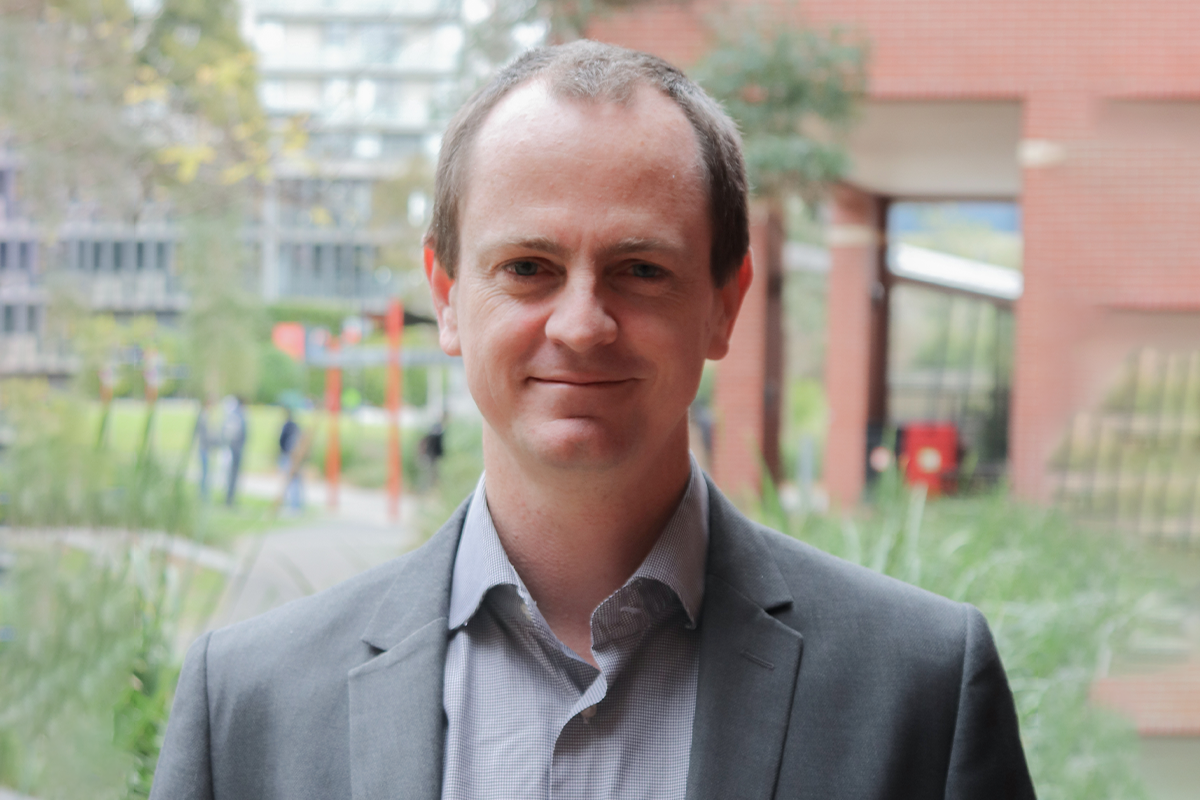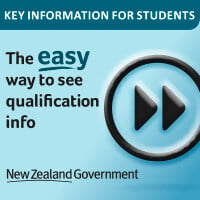Price
Domestic learners
$1,344* per 15 point course
International learners
$4,738* per 15 point course
*Price is approximate and subject to change based on elective course selection. Fees outlined are based on the 2026 fee schedule and are subject to revision each year. Prices include GST where applicable. Non-tuition fees, such as the Student Services Levy (SSL), will also apply.
Qualification
MEM
180 points
PGDipEm
120 points
Duration tooltip: Duration is approximate and subject to course availability
3 years part-time
Entry times
27 April 2026
13 July 2026
28 September 2026
2027
Overview
Open new, high-level career options with our online Master of Engineering Management. Designed to meet the need for engineering managers in Aotearoa, you'll grow close connections with industry, and complement your engineering expertise with new business management skills.
Through flexible, online learning you'll explore the ins and outs of project management, stakeholder engagement and sustainability, applying your integrated technical and business skills in a real-world, industry project.
Gain the specialised knowledge you need across communication, interpersonal management, planning and leadership, to succeed as an industry-leading engineering manager.
With flexible study options, you can also choose to graduate early with a Postgraduate Diploma in Engineering Management.
Requirements
To ensure that our learners have the necessary background and experience to succeed, you must have completed one of the following:
- A Bachelor of Engineering with Honours, a Bachelor of Science with Honours, or other qualifications of an equivalent standard with:
- A GPA of at least 4 in your 300-level and higher courses
- Completion of both the academic and non-academic requirements of your previous degree. This may include practical work days, work reports, a workshop training course, and a first aid certificate.
- Relevant academic or professional experience equivalent to the above qualification. Examples of this include:
- A Bachelor of Engineering Technology with at least five years of professional engineering experience
- Professional experience as a Chartered Professional Engineer
- Professional experience recognised by an engineering peak body equivalent to having a qualification or meeting the Washington Accord
If English is your additional language, you are also required to meet UC's English language requirements, with an IELTS Academic score of 6.5, with no individual score below 6.
For full entry requirements, see the Regulations for the Master of Engineering Management or use the admissions requirements checker.
Looking for other options?
- You may be eligible to pathway into the Master of Engineering Management through a Postgraduate Diploma in Engineering Management (which includes eight of the ten MEM courses).
- You maybe eligible for a fast-track option for the Master's programme if you have significant work experience.
Please contact us to discuss your options.
Unsure about your suitability?
As part of our application process, your eligibility will be assessed by our engineering academic team to make sure that your academic and/or professional background meets the entry criteria. Unfortunately our Tuihono UC | UC Online team cannot confirm your eligibility before your application is submitted, beyond referring you to the requirements above. We are happy to help answer any general questions you have about the programme or online learning, however. You can get in touch with us here.
At a glance
Get a quick look at how this flexible online programme can help advance your career.
Structure
The Master of Engineering Management can be studied part-time within three years, and must be completed within four years. The Postgraduate Diploma in Engineering Management can be studied part-time within two years, and must be completed within three years.
Time commitment
Unless otherwise stated, Tuihono UC | UC Online learners study across terms, rather than semesters. We have four terms per year which consist of nine-weeks of study (including a one-week study break), followed by a two-week period of marking and feedback.
Part-time learners complete one 15-point course every term, requiring approximately 18.5 hours of study per week.* Study time includes taking in course material, reflection time and writing assessments. Our courses are flexible, enabling you to plan your study around your other commitments.
*These hours may change when studying EMGT610 (20 points), MBAD615 (10 points) and EMGT680 (45 points), depending on your schedule and course availability.
Upcoming term dates
Our current nine-week learning dates can be found below (please note: these dates exclude our two-week period of marking and feedback).
2026 dates:
- 2 February – 5 April 2026
- Study break: 2 – 8 March 2026
- 27 April - 28 June 2026
- Study break: 25 – 31 May 2026
- 13 July - 13 September 2026
- Study break: 10 – 16 August 2026
- 28 September - 29 November 2026
- Study break: 26 October - 1 November 2026
Please note: these dates are provisional and may be subject to change.
What you'll study
You'll study nine NZQF level 8 postgraduate courses for the Master of Engineering Management, concluding with a NZQF level 9 research project related to your chosen area of professional focus. If you decide to exit early, or would like a shorter qualification, you'll study eight NZQF level 8 postgraduate courses for the Postgraduate Diploma in Engineering Management.
Description
This course enables you to identify and reflect on your leadership capabilities through self-assessment and reflection. You will develop the professional requirements to become an ethical leader. This paper supports you in recognising your personal leadership gaps and design your professional leadership development. During this course, you will examine yourself through self-assessment and analyse using key theories and cases related to the effective practice of ethical leadership. You will examine your current and previous workplace experiences and relationships to understand leadership behaviour in the context of the ‘real world’.
Description
Project management is a core engineering task, and is a systematic approach to planning, organising, monitoring and controlling resources to achieve goals and objectives. This course focuses on the skills needed to plan, initiate, manage delivery and review a complex technical project. This includes identifying project requirements through stakeholder engagement, scope development, resource scheduling and costing, accounting for project quality, developing project risk management plans, coordinating work, and utilising monitoring and evaluation techniques. During this course, students will work as individuals within a consulting environment to find and develop an industry project suitable for EMGT 680.
Description
Engineers act as knowledge brokers, bringing together people and knowledge to enable technological advancement. In order to become expert knowledge brokers, engineers need to be able to appreciate different approaches to addressing a problem, as well as critically evaluating and synthesising information. In addition, engineers are expected to be able to create, manage and interpret knowledge. This course addresses these needs by further developing independent research skills. This course will commence by introducing different research paradigms and methods, including different knowledge and cultural frames. The course will then further develop on approaches to critically evaluate information, in order to make an informed and limited judgement. The course will then focus on qualitative and quantitative research methods, including survey design and the analysis of large data samples. The course will conclude on approaches to communicate data to different audiences.
Description
This course focuses on the development of enabling skills needed for managers in a technical organisation. Topics include corporate structures and processes, human resource management, strategic planning and implementation processes, monitoring and evaluation techniques, ethics, quality management, discounted cash flow techniques, financing, occupational health and safety and risk management.
Description
Engineers have a critical role in contributing to positive economic, environmental and social outcomes. The ability to achieve positive sustainable outcomes are grounded in the ability to integrate systems and anticipatory thinking with other engineering management skills of recognising different values and perspectives and beliefs, evidence-based strategy, and collaboration. This course focuses on developing systems and anticipatory thinking, with a focus on understanding the interactions between human, cultural, environmental, economic and technical systems. The development of these skills will then be leveraged to understand the applicability and limitations of different sustainability tools and frameworks for engineering activities. The course will focus on local, regional and global sustainability challenges, and will incorporate the importance of integrating tikanga Māori in engineering activities.
Description
The generation, analysis and interpretation of financial statements as well as the use of financial information for internal and external decision-making.
Description
This course is designed to provide graduates with the skills to manage the development of, or utilise new or emerging technology in a business context. Students will work in teams and individually to critically evaluate the benefits and opportunities, as well as the limitations and risks associated with different technologies. This will lead to the identification of pathways to implement and/or further develop different technologies, accounting for organisational strategy, production, marketing, market position, research and development, human resources, and intellectual property considerations.
Description
This course provides learners with highly specialised knowledge and advanced capabilities in strategic procurement and contract management within complex project environments. Students will critically evaluate and select appropriate contract types, manage solicitation processes, and conduct bid evaluations with an emphasis on fostering strong supplier relationships, including those governed by New Zealand-specific legislation and contracting practices. The course explores advanced contract administration techniques to ensure legal compliance and ethical integrity, while managing risk and liability on both local and global scales. Students will independently apply innovative approaches and emerging technologies to enhance procurement systems and improve commercial outcomes. Through the critical application of negotiation theory and practice, learners will develop and implement advanced negotiation strategies, along with effective conflict resolution and dispute management techniques. Students will demonstrate leadership in complex decision-making situations, contributing to the design and governance of procurement strategies that align with organisational and stakeholder priorities. Ethical, sustainable, and evidence-based practice underpins all learning in this course.
Towards the end of their MEM, learners can choose an elective course in an area such as energy transition, risk management, or applied data science. Additional options in software and computer engineering, or statistics may also be available, subject to academic background and faculty approval. Full elective options will be confirmed with enrolled learners.
Description
In this course, students complete a project to demonstrate mastery in engineering management. Projects may relate to optimisation, data analytics, knowledge management, project management, technology evaluation and implementation, business operations in an engineering context, or sustainability evaluations. Students will have the opportunity to complete an industry focussed engineering management project through two options. The first option is to deliver an external industry project or to develop a project based on their own interests. Approval of this first option will be subject to criteria. The second option is to complete an internal project with other students, in collaboration with an industry partner. In the second option, you may be partnered with students from other master's degrees, to offer a cross-disciplinary approach for the industry partner. This second option is for students who wish to complete the project with other students or for students who do not meet the criteria for an individual industry project.
Our people
The Master of Engineering Management is coordinated by Dr Lulu Barry, with contributions from Dr Enda Crossin, Dr Hannelie Nel, and other industry professionals and Te Whare Wānanga o Waitaha | University of Canterbury academics.

Dr Lulu Barry
Director of Engineering and Management Programmes | University of Canterbury
Lulu Barry, PhD, MPM, BEng, DTLT, PMP, is the Director of Engineering and Management Programmes at the University of Canterbury. She oversees the delivery and development of postgraduate programmes that integrate engineering and management disciplines, ensuring students receive a high-quality, industry-relevant education. In this role, she is responsible for programme oversight, curriculum development, and course facilitation.
With a PhD in Project Management, a Master of Project Management (MPM), a Bachelor of Engineering (BEng), and a Diploma in Tertiary Learning and Teaching (DTLT), Lulu brings a strong academic and professional foundation to the field. A PMP-certified project management professional, she specialises in project management, programme development, and industry collaboration, with a focus on innovative teaching methodologies and student engagement in online learning. An advocate for industry engagement, she has built extensive connections to align academic programmes with real-world needs. She also actively contributes to the Christchurch PMINZ branch and integrates academic research with practical applications to prepare students for leadership roles in engineering, project management, and beyond.

Associate Professor Enda Crossin
Head of Department | Electrical and Computer Engineering | University of Canterbury
Enda Crossin is an Associate Professor and the Head of Department for Electrical and Computer Engineering at the University of Canterbury. He is a a Chartered Professional Engineer (Australia) in the fields of Mechanical Engineering, Leadership and Management, and Project Management. He is a materials and sustainability expert, and has led industry-based research projects for a range of sectors. His current research interests focus on utilising life cycle assessment to understand the environmental performance of new material & waste management systems, and engineering education. He currently leads the BeLongEng project, the first ever longitudinal study of engineering practice. He is passionate about developing engineers who are prepared for work in the 21st century, and is a member of Engineering New Zealand, Engineers Australia, and the Australasian Association for Engineering Education.

Associate Professor Hannelie Nel
Associate Professor in Engineering Management | University of Pretoria
Hannelie Nel is an Associate Professor in Engineering Management at the University of Pretoria and a Visiting Associate Professor of Practice at the University of Johannesburg. She holds a Doctorate in Engineering Management and has over 25 years’ experience in both industry and academia. She is a Professional Engineer and has served as Past President of the Southern African Institute for Industrial Engineering and as Industry Advisory Board Member of the American Society for Engineering Management. She is an invited member of the International Women’s Forum and has received several international awards for her contribution to industry and academia. Her commitment to the attraction and advancement of women in engineering remains a lifelong passion.
Stay updated
If you’re keen to know more, stay updated on when enrolments open or ask a question, please sign up for updates below.
Cap & minimum enrolment threshold: a minimum number of learners is needed for effective interaction and feedback, while a maximum cap of learners ensures high quality learning and support. If the minimum number of enrolments required for a course isn’t met, or the maximum cap is exceeded, learners will be given the option to defer their study or receive a refund.
FAQ
MEM graduates have integrated technical and business skills, real-world project experience, and are connected with industry professionals to help learners transition to management and leadership roles.
You could find work in engineering firms, consultancies, product manufacturers, government ministries, or start your own business.
Whether you need advice finding the right course for you or support with the enrolment process, we’re here to help! Contact our enrolment support team for course information, technical help and enrolment support.
Learners have access to the same support services as on-campus students, including academic advising, technical support, and library resources. There are also great resources for both Canterbury based and remote learners at the UC RecCentre. Learn more here.
Learners also have the support of our Tuihono UC Learner Experience team.
The overall cost of tuition fees per 15 point course based on the 2026 fee schedule:
- for domestic learners is $1,344* incl GST
- for international learners is $4,738* plus GST if applicable.
Total programme investment for the 180 point programme based on the 2026 fee schedule:
- for domestic learners is $16,128* incl GST
- for international learners is $56,850* plus GST if applicable.
*Please note that the fees are charged on a per year basis and the amount charged reflects the number of courses/points enrolled in the current year. These are based on the 2026 fee structure and subject to revision – you can learn more about the University of Canterbury’s Tuition fee structure here.
Student Services Levy costs
Each year university students around Aotearoa New Zealand are charged a Student Services Levy (SSL) in addition to their tuition fees. All the SSL money collected can only be used for the benefit of students - never for academic or administrative costs.
The SSL is automatically calculated on how many points you enrol in per academic year, capped at a maximum of 150 points. Tuihono UC | UC Online learners are charged a reduced SSL rate, which is 20% of the usual on-campus student levy. This is calculated as $2.06 per academic point in 2026. You can learn more about the Student Services Levy here, and more about UC Support Services here.
There are a range of options you can use to finance your study, which you can learn more about here.
Applications are made online through our Tuihono UC | UC Online website – please sign up for updates to stay in the loop about when applications open.


